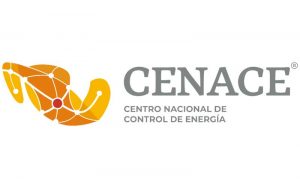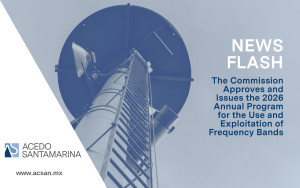
Last April 29, 2020, the National Energy Control Center (“CENACE”), issued the Agreement to Guarantee the Efficiency, Quality, Reliability, Continuity and Security of the National Electric System (“Agreement”), due to the recognition of the SARS-COv2 virus disease epidemic (COVID-19).
The Recitals of the Technical Annex of the Agreement state, among others, that the intermittent generation of wind and photovoltaic Power Plants affects the reliability of the National Electric System (“SEN”) in terms of sufficiency, quality and continuity of electricity supply, as well as that they do not contribute to the primary regulation of frequency quality control, favoring the dispatch of energy from conventional sources, without due technical and legal support.
By virtue of the foregoing, the Agreement -in principle- is discriminatory and detrimental to the interests of wind and photovoltaic clean energy generators, in terms of the provisions of Article 108, section IV of the Electricity Industry Law, which textually states:
“Art. 108.- CENACE is empowered to:
…
IV. To operate the Wholesale Electricity Market under conditions that promote competition, efficiency and no undue discrimination;
…”
As a consequence of the foregoing, the Plenary of the Federal Antitrust Commission (“COFECE”), on May 6, 2020, issued the Opinion No. OPN-006-2020, from the analysis of which the following points should be highlighted:
- The Agreement does not specify the reasons why the drop in energy consumption creates instability in the SEN, nor does it specify the criteria or parameters under which it would no longer be necessary to apply the announced measures.
- The Recitals of the Technical Annex to the Agreement detail a number of network failures. However, the Agreement does not specify how such failures are the result of the operation of renewable generation plants, so it is not clear why, in order to solve such problems, it is necessary to adopt measures for the SEN in general and not specific actions.
- The Agreement could involve the dispatch of conventional power plants that are mainly owned by the Federal Electricity Commission (“CFE”) over more efficient ones, which could open room for discriminatory treatment.
- The Agreement is not clear as to how CENACE will apply the measures contemplated therein, nor as to the period of its application.
- The generation and commercialization of electric energy are services provided in a free competition regime, therefore the Agreement has two (2) effects contrary to competition and free concurrence in the generation market: (i) on the one hand, it prevents, for an indefinite period of time, the possibility of competing in the market through new wind and photovoltaic plants, and (ii) on the other hand, it generates uncertainty about the plants of this type already operating in the market and enables possible discriminatory measures against them.
- Canceling the possibility of new Power Plants entering the market means depriving users of cheaper electricity tariffs in the medium term.
- The Agreement generates uncertainty for future investments, discouraging the creation of new generation projects, which may negatively impact the country’s electricity generation capacity.
- Clean energies represent a cheaper and more environmentally friendly source of electricity.
- The intermittency of these types of sources is due to their very nature, and due to their limited storage capacity, their capacity has to be supplemented with that of conventional generation plants.
- Those who could benefit from this measure are companies with conventional power plants that currently have idle available capacity, such as CFE.
Based on the above, COFECE issued the following recommendations:
- That the measures adopted by CENACE regarding the intermittent wind and photovoltaic Power Plants in operation are based on strict technical criteria directly linked to aspects of reliability, continuity and stability in the SEN, and that such criteria are made public.
- Not to grant discriminatory treatment to certain Power Plants and to guarantee, in accordance with the applicable legal framework, the economic dispatch of plants according to their costs, from lowest to highest, without compromising the stability of the SEN.
- Define and make public the criteria under which the implementation of the measures taken in the Agreement will be suspended, by means of clear, transparent and measurable parameters by third parties, especially for the resumption of pre-operational tests for wind and photovoltaic plants.
- To apply the interventions taken in the Agreement, only to the extent that they are strictly necessary to ensure the stability of the NSS, due to the COVID-19 epidemic, provided that there are no alternatives that are less restrictive to competition.
- Undertake the analysis of the actions or regulations required, in conjunction with all players in the sector, to address in the short term the effects identified in the SEN and in the operation of CFE as a generator of electricity for basic service, and of “last resort”; and to create in the medium term a stable system consistent with the country’s energy needs and productive capacity, so as to reduce the social costs of electricity generation.
We agree to clarify that the opinion of COFECE mentioned above is non-binding in terms of article 12, section XII of the Federal Antitrust Law, so we will have to wait for CENACE’s response to such opinion. The foregoing is without prejudice to the fact that COFECE could initiate an ex officio investigation on this matter, and the affected competitors could also file, if necessary, the corresponding complaint with COFECE.





